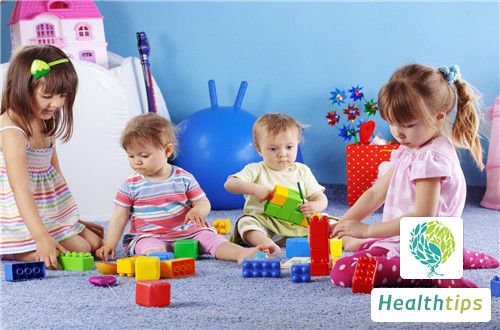How to Quickly Relieve a Babys Bloated Belly and Promote Gas Expulsion?
All parents hope that their babies can grow up healthily. As children's bodies are constantly developing, various abnormalities can easily occur. Belly bloat is a typical one. When a child has bloat, they will feel very uncomfortable. At this time, it is necessary to take timely measures to help the child release the trapped gas. There are quite a few methods for this. So, how can parents help babies with bloat release trapped gas quickly? Here are some suggestions:

1. Let your baby do exercise: Lay your baby flat and help them lift their feet to do a bicycle-pedaling motion. This action can help expel gas and relieve your baby's discomfort.
2. Apply hot compress to your baby's belly: Bloat may cause your baby to cramp up and feel more uncomfortable. Apply a warm towel to your baby's belly. Relaxed muscles can make it easier for gas to be expelled.
3. Ensure your baby spends time on their tummy: Once your baby is old enough, make sure they spend a lot of time on their tummy, which is practicing to crawl. Crawling can help exercise your baby's muscles and also help with abdominal gas expulsion.
4. Massage your baby's belly: You can help your baby massage their belly, which can help expel gas from the abdomen. Additionally, massaging your baby can also enhance the parent-child bond and improve emotional connection.
5. Limit pacifier use: Many parents like to use pacifiers to calm their babies, but sucking on the pacifier too much can cause your baby to swallow a lot of air, which can lead to bloat. Therefore, it is best to limit the frequency of pacifier use.
6. Change the way you feed your baby: Sometimes, the way you feed your baby can also cause bloat. Babies who are bottle-fed are prone to swallowing a lot of air during feeding, which can lead to bloat. Try using a bottle with a smaller flow rate and keep your baby in a tilted position while feeding.
1. Swallowing too much air: When babies are bottle-fed, if they suck too quickly, they may swallow too much air. Improper hole size of the nipple or tilting the bottle can also allow air to enter the baby's belly through the nipple gap. Excessive crying can also lead to bloat.
2. Digestive problems: Accumulation of feces in the intestines can lead to the proliferation of gas-producing bacteria. Food allergies such as milk protein allergy, lactose intolerance, and intestinal inflammation can also cause poor digestion and absorption, leading to the production of large amounts of gas.
3. Gastrointestinal motility disorders: These can be divided into functional disorders called "pseudo-intestinal obstruction" and true neurological deficiencies of the gastrointestinal tract called "congenital megacolon". The severity of these problems can vary, ranging from chronic constipation and bloating to severe vomiting. They can be temporary or lifelong.
There are many reasons that can cause bloat in babies. Parents must be vigilant and observe carefully. Do not overlook any signs and symptoms that could lead to serious consequences. If you notice severe symptoms, seek medical attention promptly to avoid delaying the best treatment time and causing unacceptable outcomes. Parents are deeply concerned about their children's health and hope that they can grow up happily.



















